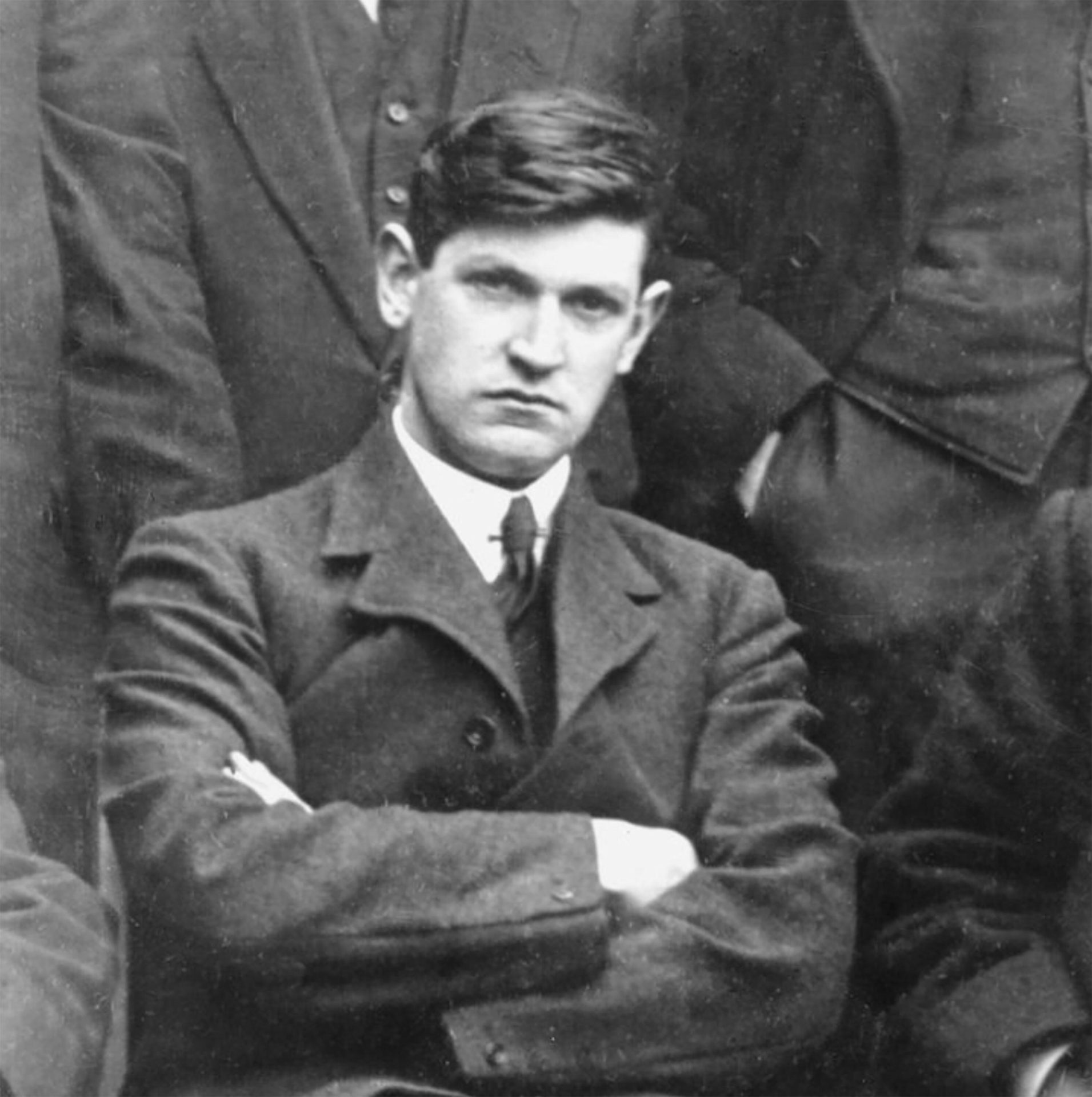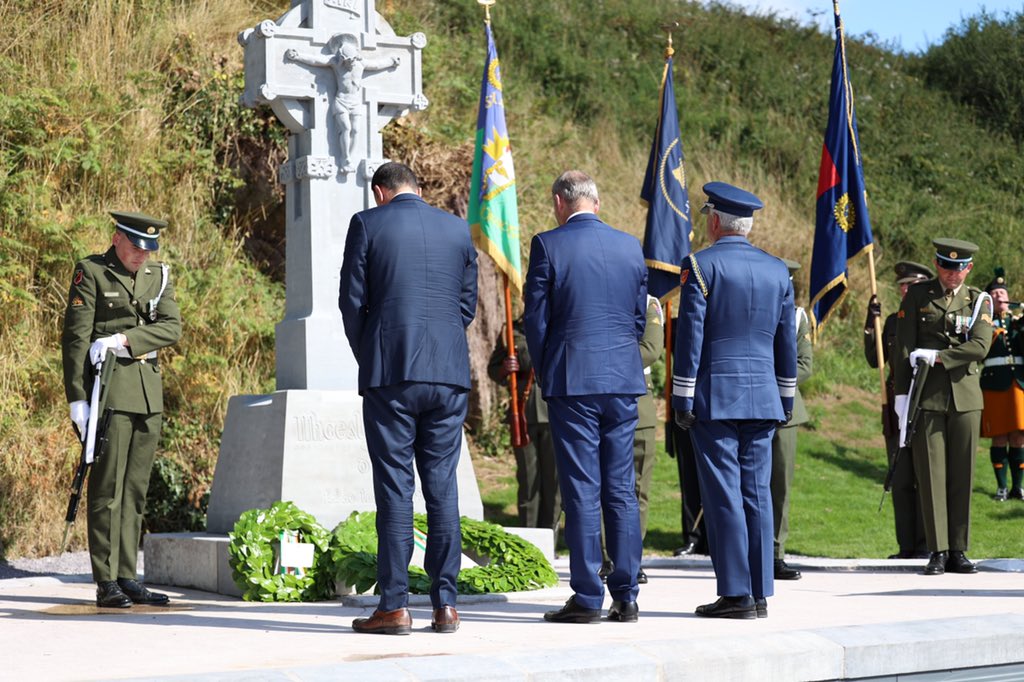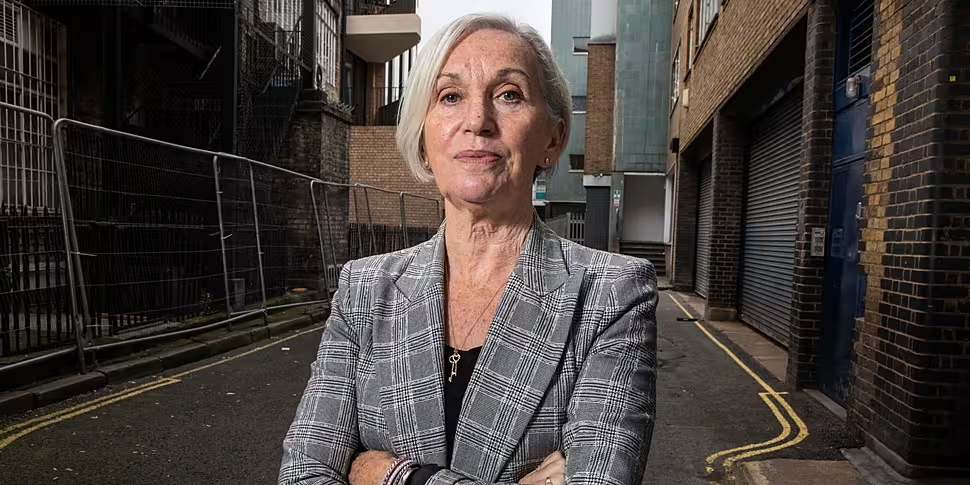Former State Pathologist, Professor Marie Cassidy, says elements around the death of Michael Collins could have been overlooked.
It comes as the country marks 100 years since he was assassinated.
However following his death, there was no inquest or formal independent autopsy.
Prof Cassidy chairs a cold case panel as part of a new RTÉ documentary.
It is made up of forensic scientists, criminal investigators, military strategists, archaeologists and historians.
She told The Pat Kenny Show the review is relying on a number of sources.
"You're always very dependent on the actions at that time when the death was being investigated in the first instance, and how much evidence was collected.
"And in the case of Michael Collins, because of the circumstances, the coroners had suspended holding inquests and having full investigations."
 Michael Collins is pictured in 1919. Picture by: Pictorial Press Ltd / Alamy Stock Photo
Michael Collins is pictured in 1919. Picture by: Pictorial Press Ltd / Alamy Stock PhotoShe said they had to rely on other elements.
"We had various eye-witness accounts - we had the doctors and a matron who had seen his body afterwards, so they had described certain injuries.
"We had some artefacts that were literally brought up from the bowels of the museum which had been gathered at the time.
"So we were working between what historians had written about the circumstances, the eye-witness accounts and... by sheer luck, being able to get hold of the museums artefacts".
'What they think they saw'
Prof Cassidy said they have to filter through a lot of information.
"It's like any murder investigation - the eye-witness accounts are to some extent reliable.
"But people get confused, because these things happen so quickly, and there's a lot of drama at the time people get mistaken in what they think they saw.
"So what we have to do is sort of filter through all of that, and take out the information that we think we can not so much prove.... but at least that we have got other evidence that would substantiate some of the things that were being said about the injuries in particular".
On Collins' death, she said there could have been more to it.
"People hone in on a bleeding injury or a large injury.
"I see it very often - people when they get to hospital - the doctors are busy dealing with different areas of the body, and there's often areas that are overlooked.
"It's only when - I'm in a privileged position that I get to see everything - that you can actually start to look and you see that things have been overlooked, or missed or misinterpreted at the time.
"And I think that's what happens in the confusion of the incident.
"People were trying to make sense of it, which sometimes is quite difficult".
Asked what stood out for her, Prof Cassidy said she had several questions.
"I just wondered how did it come about: How did this man - so well-know, so respected - come to be driving in an open-top car in the middle of the country and ended up in an ambush?
"It was just interesting to me to see the build up to what actually happened, and then try and sift through... all of the information that they had about the actual event itself".
 Taoiseach Micheál Martin and Tánaiste Leo Varakar were among those attending a memorial for Michael Collins in Béal na Bláth on Sunday. Picture via @merrionstreet on Twitter
Taoiseach Micheál Martin and Tánaiste Leo Varakar were among those attending a memorial for Michael Collins in Béal na Bláth on Sunday. Picture via @merrionstreet on Twitter'Such a waste of a life'
But she said she allowed herself to get emotionally invested in this.
"We never know what he could have done had he survived.
"And it's the same with any death I deal with, I'm never allowed to be emotionally involved at the beginning.
"But afterwards at the court cases and at the inquest, when I see the effect it's had on the family you can't help but be touched by that.
"This person could have been another wonderful scientist, they could have done all sorts of things with their life.
"It is such a waste of a life at such a young age".
And she said some cases have affected her more than others.
"Particularly coming to the end of my time as a State Pathologist, there was cases where I was saying 'Do I want to spend the rest of my life looking at this disorder, this viciousness, this violence?'
"And I think that's the time when you think 'No, it's time to go'".
'Cold Case Collins' will air on RTÉ One on Wednesday at 9.35pm









